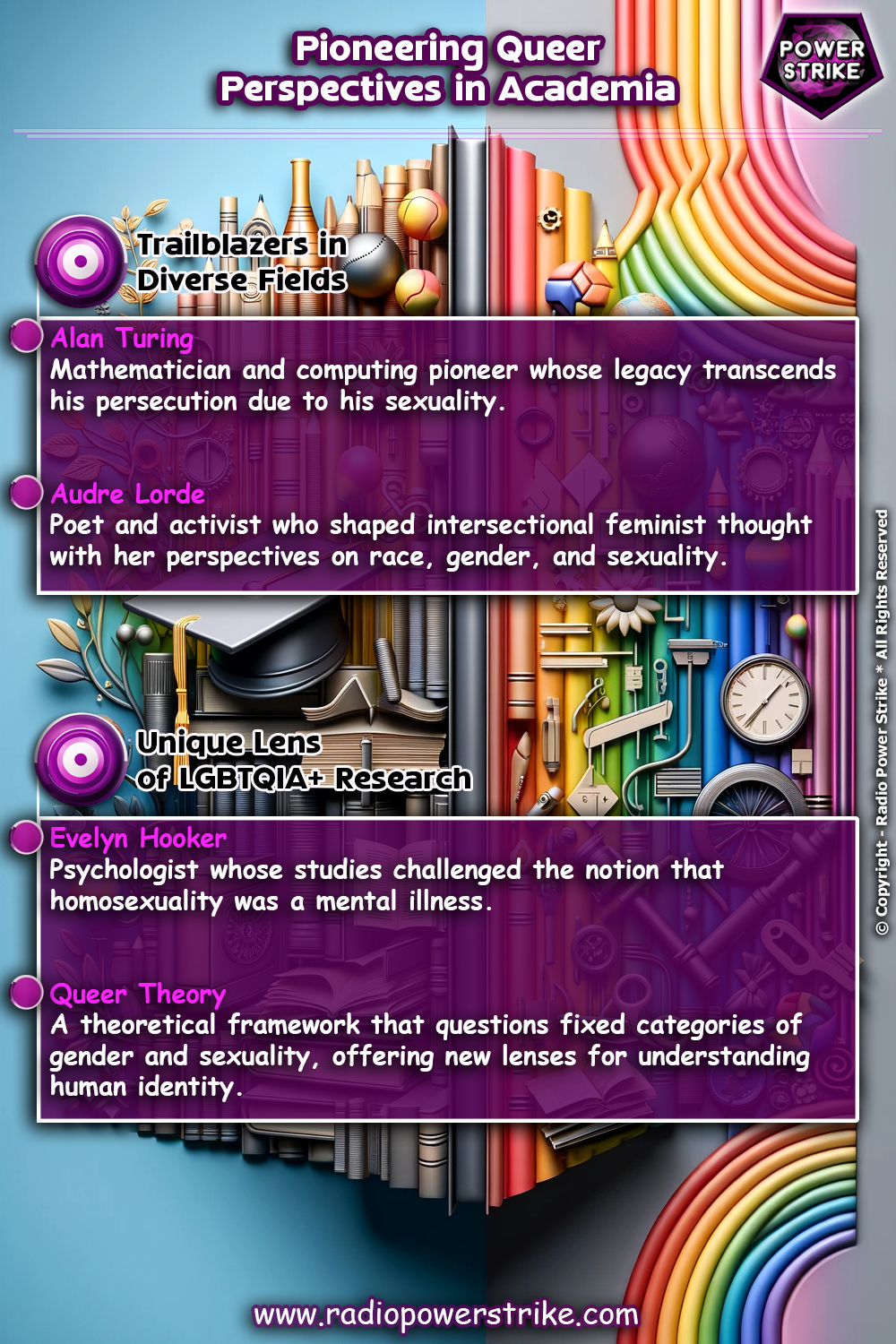Queer in Academia: Contributions to Knowledge and Research
Illuminating Queer Insights: The Impact of LGBTQIA+ Scholars in Academia

The world of academia, with its research, debates, and discoveries, is a dynamic tapestry woven from diverse voices. Among them, LGBTQIA+ scholars have been instrumental in broadening horizons, challenging traditional paradigms, and enriching academic discourse. This article sheds light on the invaluable contributions of queer academics and their enduring impact on various fields of study.
Trailblazers in Diverse Fields
LGBTQIA+ scholars have left indelible marks across numerous academic disciplines. Consider, for example, Dr. Alan Turing, a gay mathematician whose pioneering work laid the foundation for modern computing. Despite facing persecution for his sexuality, Turing’s genius contributed immensely to theoretical computer science and artificial intelligence.
Similarly, Audre Lorde, a self-described “black, lesbian, mother, warrior, poet,” challenged and expanded the boundaries of feminist thought. Her writings on the intersections of race, gender, and sexuality continue to inspire scholars and activists worldwide.
These examples underscore the myriad ways in which LGBTQIA+ individuals have shaped, and continue to shape, the trajectory of academic inquiry, despite societal prejudices.
The Unique Lens of LGBTQIA+ Research
LGBTQIA+ scholars often bring a unique perspective to their research, informed by their lived experiences. This has led to groundbreaking studies on gender and sexuality, challenging long-held assumptions and introducing new paradigms.
Dr. Evelyn Hooker, for instance, conducted pioneering research in the 1950s that debunked the prevailing notion of homosexuality as a mental illness. Her work was instrumental in the eventual removal of homosexuality from the American Psychiatric Association’s list of mental disorders.
Furthermore, the rise of queer theory, led by scholars such as Judith Butler and Eve Sedgwick, has provided fresh insights into the fluidity of gender and the social constructs surrounding it. This body of work not only deepens our understanding of human identity but also fosters inclusivity and acceptance in broader society.

Navigating the Challenges of Being Queer in Academia
Despite their contributions, LGBTQIA+ scholars often face unique challenges in the academic world. These range from overt discrimination and bias to the more subtle erasure of their work’s significance. However, many have turned these challenges into opportunities, advocating for more inclusive academic spaces.
Organizations like oSTEM (Out in Science, Technology, Engineering, and Mathematics) support LGBTQIA+ students and professionals in STEM fields, promoting diversity and inclusion. Similarly, academic conferences focusing on queer studies provide platforms for LGBTQIA+ scholars to share their research, network, and advocate for change.
By spotlighting and addressing these challenges, the academic community can better appreciate and harness the diverse insights that LGBTQIA+ scholars bring to the table.
LGBTQIA+ voices in academia have profoundly influenced the way we understand the world, pushing boundaries and opening doors for more inclusive research. Their groundbreaking work, resilience in the face of adversity, and commitment to advancing knowledge serve as a testament to the power of diverse perspectives in shaping academic discourse. As academia continues to evolve, it is imperative to celebrate and uplift these queer voices, ensuring that their contributions are recognized and cherished for generations to come.


Comments are closed, but trackbacks and pingbacks are open.